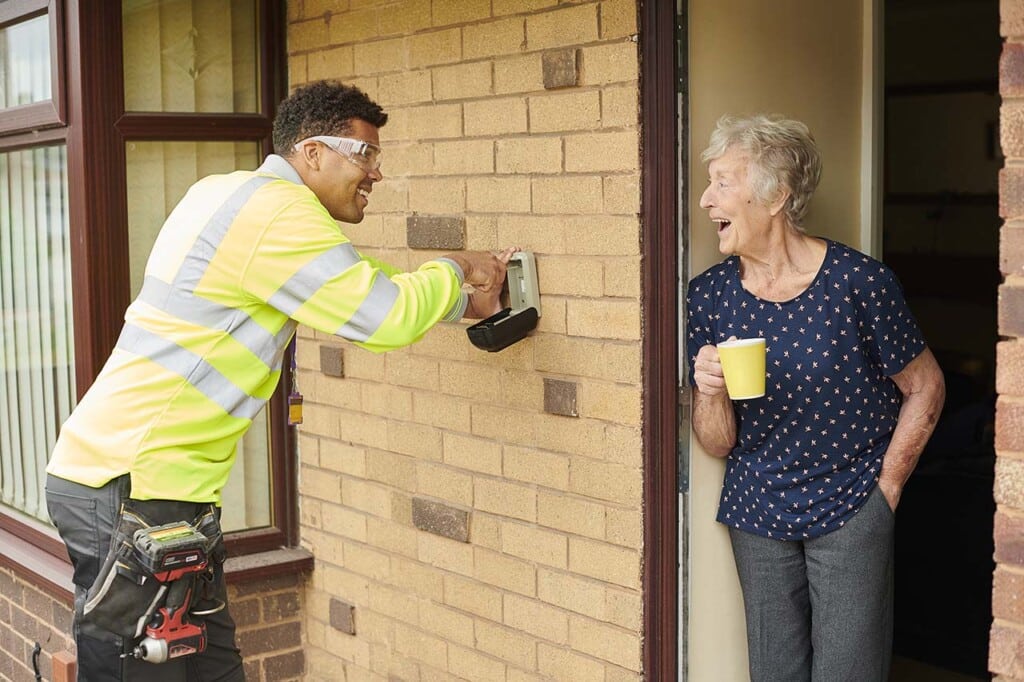Is ‘Make Things Right’ Campaign Making Repairs Harder?
The UK government’s ‘Make Things Right’ campaign was launched with the intention of giving customers a voice and improving and speeding up repair services in social housing. At first glance it seems to be effective as in a recent Mobysoft survey 77% of landlords have seen an increase in complaints. But at the moment 85% of landlords are struggling with backlogs and they expect this to rise as a result. This begs the question: should the focus for social housing providers’ maintenance services be on quality rather than speed to deliver sustainable repairs and reduce the number of jobs over time?
Quality Vs Speed
One of the main issues with the ‘Make Things Right’ campaign is that it has put pressure on social housing providers to place an emphasis on speed in addressing repair issues. The campaign’s emphasis on quick resolutions and meeting targets may have inadvertently led to rushed and temporary fixes that do not address the root cause of the problem. As a result, tenants may experience recurring issues, leading to further complaints and an increase in the backlog of repairs. This cycle of quick fixes followed by subsequent complaints leading to yet more repairs can create a vicious cycle that not only delays services and frustrates tenants but hampers social housing providers efforts to meet Tenant Satisfaction Measures.

Strained Resources
The campaign has also given rise to a further challenge for social landlords to contend with and that is the strain it has put on the resources available their repairs operations. With the increased volume of complaints and repairs, social housing providers may struggle to keep up with the demand, resulting in backlogs that are difficult to manage. The need to prioritise speed over quality could ultimately lead to a higher number of repairs being carried out, often without adequate time for proper assessments and planning. Operating under these constraints will likely result in subpar repairs that may not last long, leading to further issues down the line and compounding the backlog even further.
Mounting Pressures
Mobysoft’s proprietary research has indicated that 85% of landlords surveyed believe that the backlog of repairs will continue to rise because of the ‘Make Things Right’ campaign, something that suggests that initiative may not be effectively addressing the underlying issues in social housing repairs. Instead of focusing solely on meeting targets and resolving complaints quickly, there’s a need for social housing providers to simultaneously focus on quality of repairs. To do both at the same time however can present somewhat of a Catch-22 situation whereby concentrating on meeting targets for timely repairs is to the detriment of ensuring that those repairs are the right ones and ones that will last. After all, resources apportioned to getting a job done quickly means less resources to guarantee a job done correctly and vice versa.

What’s The Answer?
So, what can social housing providers do to strike a balance between quality and speed in their maintenance provisions? Firstly, it is important for social landlords to focus on the right metrics to prevent repeat repairs issues from arising in the first instance. If landlords’ current systems allow multiple visits to the same job to carry out the same repair then something has gone awry.
To combat this, landlords should look to implement a robust system for assessing and prioritising repair requests. This includes harnessing available data to conduct thorough assessments of repair needs, properly planning and scheduling repairs, and prioritising urgent repairs. By assessing and planning jobs properly, rushed and temporary fixes that may not address the underlying issues can be avoided.
Of course, doing all the abovementioned is incredibly labour intensive, unless the right technological solutions are utilised that is. Platforms such as Mobysoft’s RepairSense not only help identify the most pressing repairs jobs (thus enabling a timely fix), but also draws on unstructured data to enable intervention into a problematic repair before it escalates to a complaint, disrepair claim, or becomes a risk to the customer or property.
RepairSense aides the reduction of the number of repeat repairs, identifying avoidable jobs and providing performance data so managers and trade colleague can focus on a real ‘first time fix’. This, in turn, frees up appointments in diaries meaning that customers will have their repairs completed quicker and more efficiently.
In addition to the harnessing of technology, social housing providers should prioritise preventive maintenance and long-term solutions. This includes investing in materials and equipment, and carrying out regular inspections and maintenance checks to identify and address potential issues before they escalate to major repairs. By augmenting this with support provided by tech platforms, addressing issues proactively and implementing sustainable repairs becomes easier and will help reduce the number of repeat repairs (and ultimately decrease any backlogs) over time.
The Bottom Line
Whilst the UK government’s ‘Make Things Right’ campaign was launched with good intentions, it may have unintended negative impact on repair issues within social housing. As explored in this article, the increased focus on speed and meeting targets is likely to result in rushed and temporary fixes that do not address the underlying issues that contribute to repairs jobs developing into problematic ongoing jobs (as evidenced via the recent controversies surrounding damp and mould).
Whether the campaign will drive the results that the government hopes remains to be seen but social landlords can mitigate against any unforeseen negative effects of the scheme by utilising technological solutions to allow them to focus on the most pressing repairs jobs that threaten into snowball into something more. In doing so, social housing providers might just be able to circumnavigate unintended consequences and genuinely ‘Make Things Right’.
If you’re interested in learning more about how RepairSense can help your oganisation efficiently tackle problematic repeat repairs issues then get in touch via our Contact Us page or call 0161 924 2000.
- Staff Spotlight: Jack Pawson - July 23, 2024
- This Month In Social Housing: June 2024 - June 28, 2024
- Customer Success Snapshot: London Borough of Barking & Dagenham - June 21, 2024